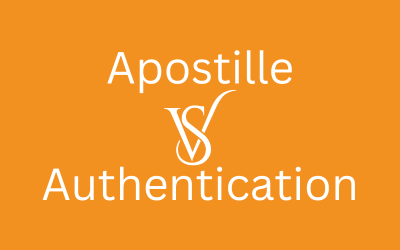Sometimes business owners want to market their services or products under a name other than their legal business name. For instance, a Sole Proprietorship, who must have both the owner’s first and last name in the business name, will want to use a fictitious name that’s more creative and compelling. They have to get permission to use that fictitious name by filing a DBA (doing business as). But other business entities, such as Nonprofit Corporations, may also have reasons for using a DBA. If you’re wondering if a Nonprofit Corporation can register a DBA, the answer is yes and I’ll cover all of the basics in this article.
Why Would a Nonprofit Want a DBA?
Sometimes nonprofits use a DBA if their legally registered name is long, and they wish to use a shorter name in marketing materials and other communications.
Some nonprofits use a DBA to help instill a greater public understanding of their mission or establish a brand identity for a specific program or initiative. Using a hypothetical example, suppose a nonprofit organization with the corporate name Children’s National Educational Services, Inc. would like to brand its book exchange program using the catchier name, “Books Are for Sharing.” The nonprofit could file a DBA for Books Are for Sharing to accomplish that.
After its DBA is approved by the state (or county), the nonprofit can advertise its special program using the fictitious name and even open a bank account and enter into contracts under that name.
When filed and maintained correctly, a DBA does not alter the nonprofit’s legal standing or tax-exempt status. The organization must continue to meet all federal and state requirements to retain its tax-exemption benefits.
Advantages of a DBA:
- Effective branding tool – A DBA can generate greater community awareness than a non-descriptive, long, or complicated corporate name.
- Cost-effective – A fictitious name allows an organization to advertise a service or program under a different name without forming a separate additional nonprofit entity.
Disadvantages of a DBA:
- Potential confusion among the donor community – Because a DBA is a fictitious name filed under the nonprofit’s legal name, potential donors trying to verify it as a tax-exempt nonprofit may have difficulty doing so if they’re searching for the DBA name. Also, if someone passes away and bequests money to the DBA rather than a nonprofit’s legal name, matters could get tied up in the probate court system (particularly if any other organizations have names similar to the DBA).
- Possible banking issues – If donors write checks to the DBA name, the receiving bank might not allow the check to be deposited or cashed unless it includes the legal name of the nonprofit.
5 Tips For Using a DBA
I encourage nonprofit organizations to consult their legal counsel before moving forward with a DBA. An attorney can help weigh the benefits and risks. They can also provide guidance on best practices when using a fictitious name. I’ve listed several general tips below. Every organization’s situation is unique, so it’s wise to consult a legal professional for recommendations specific to your nonprofit.
- When entering into contracts using a DBA name, make sure the fictitious name has been approved by the state (or county) first. Some states or counties may issue penalties to nonprofits that enter into contracts using a DBA name before that name has been registered. Consider using both the DBA and legal name in contracts to avoid potential confusion.
- If using a DBA to represent a project run by the nonprofit, consider using both the organization’s legal name and the DBA on marketing materials to ensure people understand they are the same entity. (For example, “Books Are For Sharing, a project of Children’s National Educational Services, Inc.”)
- Because a nonprofit’s DBA does not create a separate legal entity, it should operate for the same purpose as the tax-exempt organization it represents.
- Realize that banks set their own policies for cashing and depositing checks. While using either the nonprofit’s DBA or legal name may be acceptable, verifying the financial institution’s rules can help avoid potential issues.
- Remember, a DBA is not its own tax-paying entity. Tax filings must be done under the nonprofit organization’s legal name with the fictitious name listed on the Doing Business As line (below the Name of Organization) on IRS Form 990.
How to Add a DBA to a Nonprofit Corporation
Adding a DBA to a Nonprofit Corporation is not difficult. The process may differ from state to state, but it’s generally straightforward and inexpensive.
While DBA application and renewal fees vary, here are four basic steps for creating a DBA for your Nonprofit:
- Do a name search and trademark search to make sure the fictitious name isn’t already used by another organization that offers similar services. The agency that issues DBAs might deny an application if the name requested is the same as or similar to the name of another business. This is especially true if operating in the same locale.
- File the required DBA form, which is most often filed with the state. However, in some states, DBAs are handled at the county level. In those states, the nonprofit must file the DBA in each county where they’ll use the fictitious name. If a nonprofit organization will use the DBA in multiple states, it must file its fictitious name in each of those states.
- If required, publish a notice in a newspaper or legal publication (as per the state or county’s instructions). In some states, nonprofits and other companies must publicize their intention to use a DBA.
- Take note of whether and when the nonprofit must renew its DBA name. If an organization fails to renew its fictitious name and continues to use it after it has expired, the nonprofit could face fines and legal issues.
File a DBA for Your Nonprofit the Right Way
To avoid jeopardizing your nonprofit’s tax-exempt status or creating unforeseen legal problems for your organization, do your homework before using a fictitious name. Check with the states and counties where your nonprofit operates to learn their rules for filing and using a DBA. Also, consider talking with an attorney for expert legal guidance.
Let CorpNet Help
When you’re ready to press play on filing your DBA, let CorpNet’s filing experts handle the details. You’ll save both time and money with services that are fast, reliable, and affordable. And our services are backed by a 100% satisfaction guarantee, so you know you’re in good hands.





